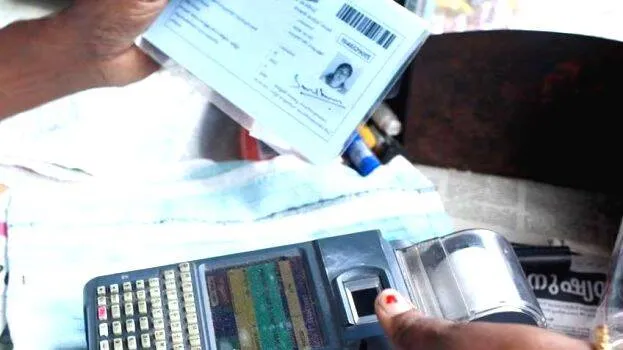

The Central Food Ministry issued an order making bio-mustering mandatory to ensure that it was the beneficiaries included in the ration cards themselves who were buying the ration. Mainly, those whose names are on priority category cards will have to appear at the ration shops or the centres set up for the same and record their fingerprints. For those whose fingerprints have not been recorded for a variety of reasons, this is possible by scanning the pupils as well. Mainly, those with yellow and pink cards, who belong to the priority category, will have to do mustering compulsorily. Though it was launched earlier this year, as usual, there were many obstacles. The mustering process could not be completed in the stipulated time despite the Centre extending the deadline. The deadline expired last Tuesday. More than 34 lakh people, whose names are on yellow and pink cards, are yet to complete mustering.
The state food department has a huge responsibility to complete this process at any cost as not only the state's ration allocation but also the ration quota of those who are buying the ration will be disrupted. Decision has been taken to continue the mustering and complete it, regardless of the expiry of the deadline. This is also a goodwill that can be shown to the people in the current situation. As many as 1.53 crore people with yellow and pink cards have already undergone mustering. Twenty-five per cent are yet to arrive. A decision has to be taken in the case of bedridden patients and children below the age of 10 years. An account of the number of bedridden patients within the limits of each ration shop should be taken. Officials will have to go to their homes and do mustering.
There are more than one lakh people whose mustering has become invalid due to the difference in name on the ration card and Aadhaar. Even if the names are made the same, the help of authorities is needed to make it valid. This is because of the technical glitches. Necessary steps should be expedited so that the poor can continue to get rations. Around one lakh invalidated cards should be restored as soon as possible. Biometric mustering was stopped across the state in March this year due to continuous strikes by e-POS machines, a regular nuisance at ration shops. It was resumed on September 18. The mustering could not be completed on time because nothing was done for five to six months. The e-POS faults could have been fixed promptly and the mission could have been completed on time. Things have to be speeded up now because it has become a habit of postponing everything to the last days.
Technical testing systems like mustering are meant to ensure that no one gets the benefit of rations illegally. Despite taking so many precautions, it cannot be said that the pretenders have completely disappeared. It is recalled that thousands of cardholders, who were already unduly benefited, were excluded from the priority category. Kerala was one of the first states in the country to have a ration system in place. Since then, the system has been maintained in an orderly manner. If people become aware, they will respond to any minor lapse. Cardholders are not responsible for the delay in biometric mustering. It was something that could have been completed on time by strengthening the systems.